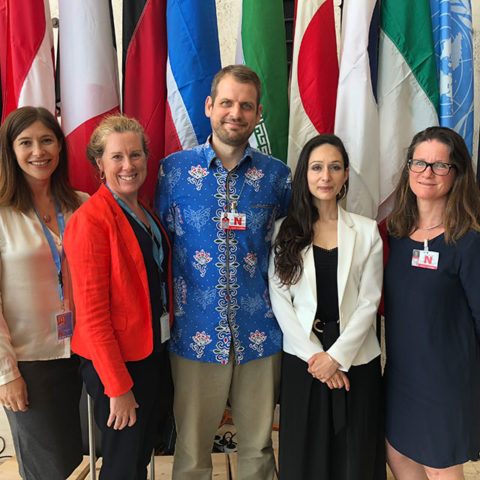
Abolishing discriminatory laws is a fundamental human rights issue – ILEP
ILEP oral submission to the 38th Session of the Human Rights Council
Statement from Mathias Duck, Chair of the ILEP Panel of Men and Women Affected by Leprosy
ILEP, the International Federation of Anti Leprosy Associations – a network of NGOs working in 63 countries to achieve zero leprosy – wishes to congratulate Alice Cruz, UN Special Rapporteur for the Elimination of Discrimination for Persons Affected by Leprosy and their Families, on her impressive report. It reminds us of the huge necessity of this important mandate, which unless addressed, means we will not reach our collective goal to leave no one behind.
I am here today as chair of ILEP’s Panel of Men and Women Affected by Leprosy – and as someone who has experienced this disease first-hand. It is an honour to be here; empowerment and participation of persons affected by leprosy is a key aspect that needs to be promoted and practiced by all of us intent on getting rid of this disease.
ILEP has a strong commitment to achieving Zero Discrimination against people affected by leprosy. Our work includes promoting the voice of people affected by leprosy; strengthening social inclusion; better understanding how discrimination affects women and girls; conducting research into the types of stigma people experience; and identifying the discriminatory laws that still exist in many countries.
We endorse the Special Rapporteur’s recommendations on greater inclusion of people affected by leprosy in the decision-making process and the need to achieve zero discriminatory lawsand practices. Clearly, we cannot hope to increase participation of persons affected if statutes remain in many countries that legally discriminate against people because of leprosy – a disease and not a crime.
ILEP has recently updated our research into discriminatory laws around the world, whichcan be found on the ILEP website. It reveals 185 discriminatory laws in 44 countries: 156 are active or of unknown status, 19 repealed, 5 under review and 5 amended. These are laws designed to segregate or separate, affecting many areas of people’s lives including where people work, how they travel and who they marry.
Abolishing these discriminatory laws is a fundamental human rights issue and we call on the States present here today to help by ensuring that any active laws under your jurisdiction are abolished. This would only be the first step. The second would be to tackle discriminatory practices and promote legislation that ensures a life of dignity for people affected by leprosy.
Together, we can achieve our collective commitment to UN Resolution “Eliminating Discrimination of People Affected by Leprosy and their Family Members” by increasing meaningful participation of persons affected by leprosy – people like me – and by committing to Zero Discriminatory laws. Thank you.
Video Player